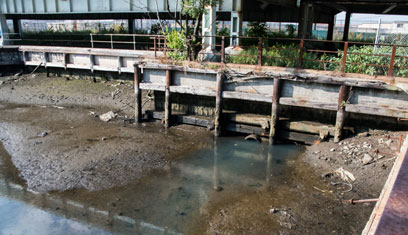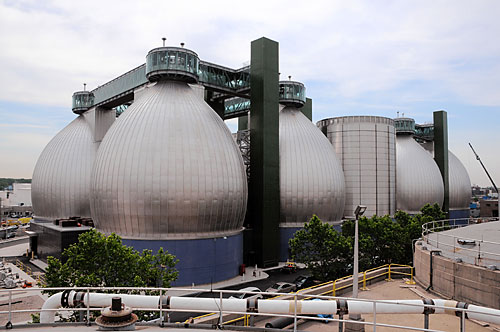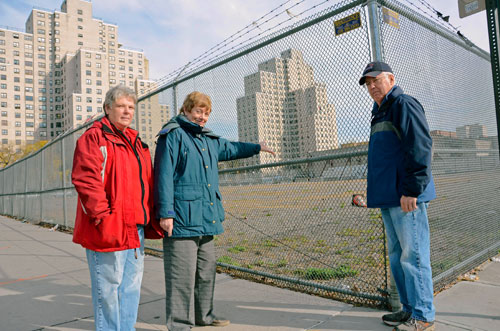For years, Dyker Heights residents have been dealing with flooding and sewage backing up into their basements every time it rains. The culprit? An aging sewer system the city started replacing around the turn of the century and never finished.
On Tuesday, state senator Andrew Gounardes, councilmember Justin Brannan, Community Board 10 district manager Josephine Beckmann and congressional candidate Max Rose gathered in the neighborhood to call on the city’s Department of Environmental Protection to to “prioritize replacing the overwhelmed and outdated sewer infrastructure south of 77th Street.”
The department started work to update the system along 10th Avenue 2o years ago, but stopped before it got around to replacing the pipes below 77th street. Gournades’ office said the unfinished renovation has caused even the lightest rainfall sewage backups and flooding of up to four feet.
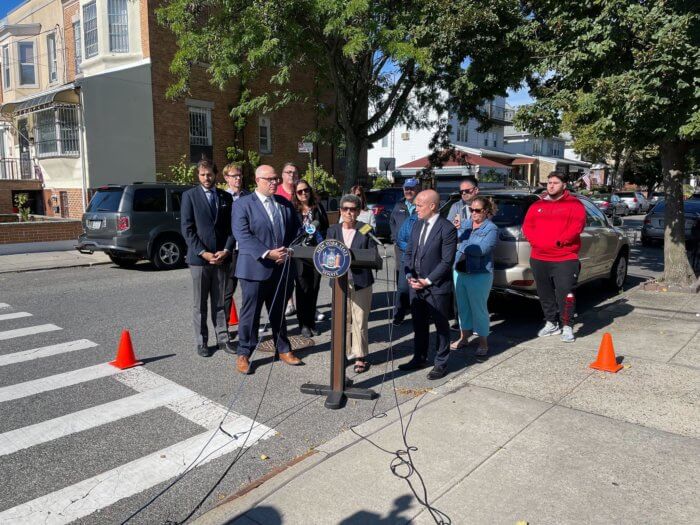
“A forecast of rain shouldn’t bring panic to Brooklynites – but for community members on 10th Avenue, that has been the case for over 20 years,” Gounardes said in a statement. “It’s unacceptable. 10th Avenue residents have been waiting for DEP to replace the hundred-year-old sewer system in Dyker Heights for over two decades now, and enough is enough. DEP must act to save these families’ homes from dangerous sewer backflow and flooding – not next year, or next month, but now.”
According to a DEP spokesperson, the department completed the original upgrade to the 10th Avenue sewer lines year ago however with more storms coming to the city, they will be working with the community to expand their current system.
“Climate change is bringing more intense storms to NYC that can overwhelm the capacity of the sewer system, and in many cases the sewers cannot be built any larger than they already are. This is why we are focused on creating a multi-layered system of defense that will combine the use of green infrastructure and traditional sewers to better manage these storms,” the spokesperson said. “We look forward to working with the Dyker Heights community on this important work.”
With recent storms exacerbating the situation, locals, including Brad Hennessy, a resident of 10th Avenue below 77th Street, are asking the DEP to act quickly in addressing what they consider a longstanding infrastructure problem.
“It’s not fair. How does it not break your heart that my neighbor, an 80-year-old woman, has to go down to her own basement to bail out waist-high water,” Hennessy said in a statement. “And each of us are dealing with our own basements, our own flooding, and neighbors can’t even help each other because we’re all in it. I follow the rules. I stop at stop signs. I ask for one thing. One thing we pay for anyway: for sewers to function. It’s crazy to me. It’s not my house that’s failing; it’s the city’s infrastructure that’s failing. So fix it.”
U.S. Rep Nicole Malliotakis recommended the department fix the issue using funding provided through the federal Infrastructure Investment and Jobs Act, a bipartisan law calling to invest in the nation’s infrastructure – including roads, bridges and waterways.
“For far too long, our local, state, and city leaders have neglected to modernize New York City’s aging infrastructure to keep pace with economic and population growth,” Malliotakis said in a statement.. “Now, with millions of infrastructure dollars available at the federal level, there is no reason why the city cannot complete these critical sewer upgrades to protect our Southern Brooklyn community from further back-flow and flooding issues.”
The devastating damage caused ten years ago by Superstorm Sandy and just over a year ago by Hurricane Ida further proves the need for the investments, the congresswoman added.
“What we’re saying is simple: my hardworking neighbors in Dyker Heights deserve to have basements that don’t flood every other time it rains,” Councilman Brannan said at a press conference. “[Twenty] years ago, the city stopped their sewer upgrades right before reaching this area. The upgraded sewer line meets the ‘old’ sewer line right around 77th Street and it seems anyone past that point is screwed.”
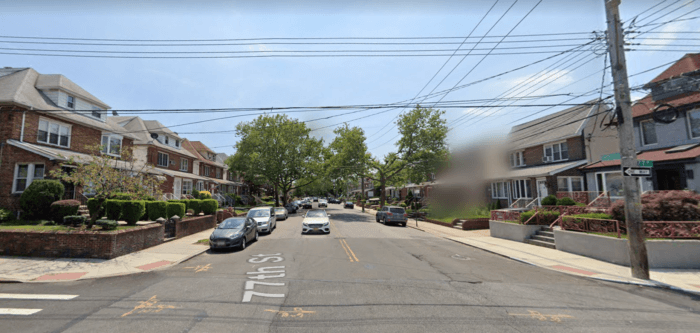
New York City primarily utilizes combined sewers — stormwater and sewage flow into the same system — and when heavy rainstorms, which are becoming increasingly more frequent as climate change affects weather patterns, cause flooding, it all comes back up to the street.
The city has recently invested in new storm sewers in Gowanus and Canarsie in an effort to reduce flooding and keep sewage out of local waterways.
“Just because these families live a few blocks further away from Manhattan doesn’t mean they don’t deserve functioning infrastructure,” Brannan said. “People around here pay more in property taxes than homeowners in neighborhoods that received sewer upgrades decades ago. This is about public health and safety. It should not be about cost.”
“Update Sept. 28, 2022, 7:24 pm: A statement from the DEP was added.”
















